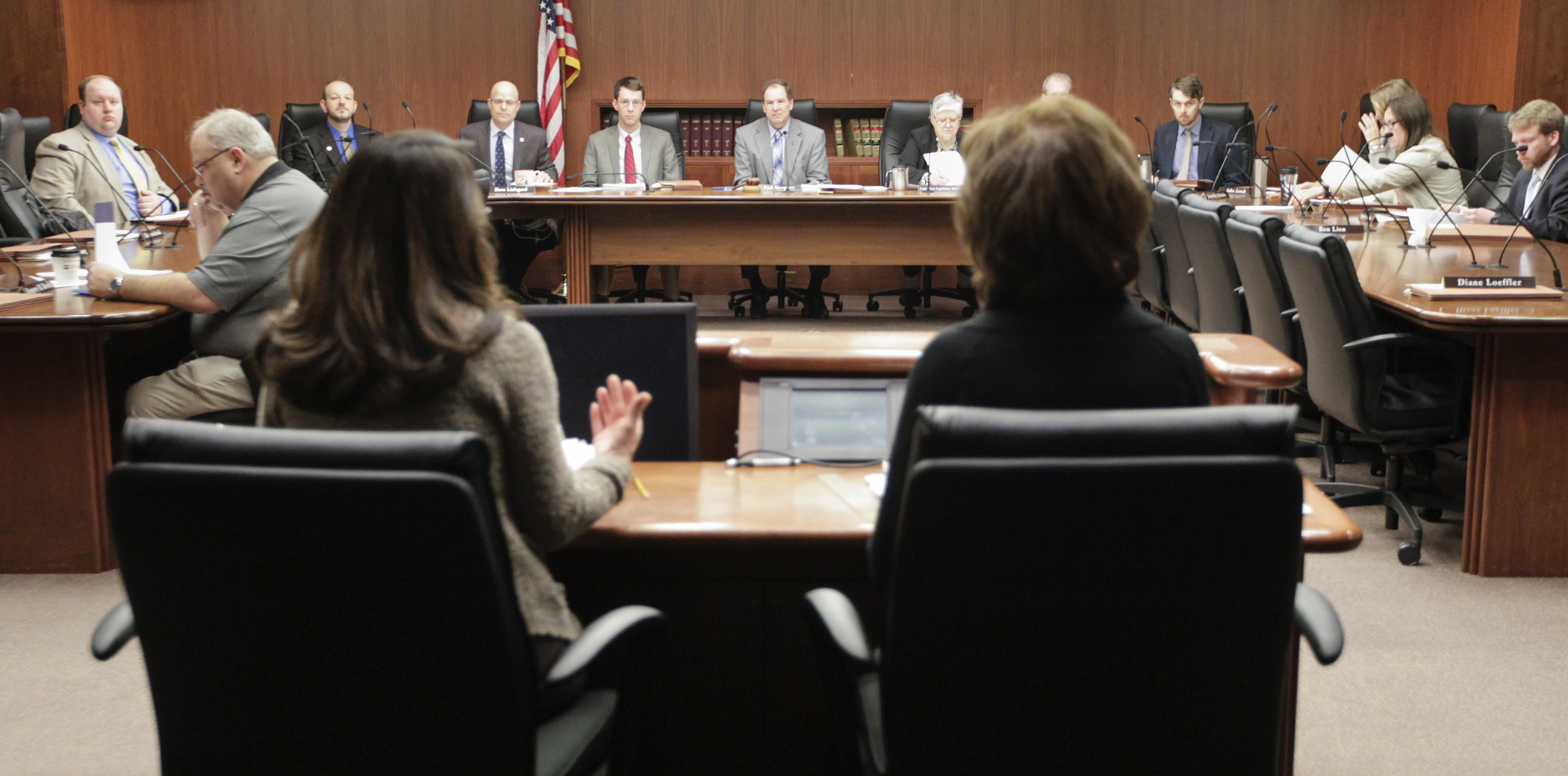Tax committee considers the fiscal upshots of non-conformity

So what happens if we don’t do anything? That was among the quandaries considered by the House Taxes Committee on Wednesday, its second day of hearings about the state changing its tax laws to conform to the 2017 federal Tax Cuts and Jobs Act.
According to nonpartisan House Fiscal Analyst Cynthia Templin, if Minnesota adds no corresponding tax policy changes, the state’s General Fund would receive an additional $646.8 million from taxes in Fiscal Year 2020 (which begins July 1, 2019), with annual estimates of between $573.7 million and $635.5 million over the ensuing three fiscal years.
Why the big windfall?
Templin said the key reasons are provisions in the federal tax bill that increase the standard deduction, adopt an alternative inflation measure, suspend personal and dependent exemptions, and suspend or limit certain itemized deductions.
If Minnesota continues to use federal taxable income as its starting point for calculating taxes (as opposed to the adjusted gross income figure used in many states), the state’s tax revenue will increase.
But committee members clearly expect to make state tax policy changes that will reduce revenue for the state and taxes for many filers. Action was taken last session to do just that, but the conference committee compromise was included in an omnibus bill vetoed by the governor.
The 2018 changes would have reduced individual income tax revenues and increased revenues from taxes related to “pass-through” corporations (certain partnerships, S corporations and sole proprietorships) and corporate franchise taxes. The net effect in the vetoed bill would have been an estimated revenue increase of $456.2 million.
Multiple testifiers weigh in on changes
David Brauer, a certified public accountant, said federal changes have made life a lot more complicated for accountants. “This bill has many of the most difficult provisions we’ve seen and we’re still getting guidance from the federal government about how to implement many of those provisions.”
Brauer estimated that a simple individual Minnesota tax return will require an extra hour or two to complete accurately, while those who are part of “pass-through” businesses will require “countless hours.” He also expressed concern that the state will have to initiate more tax audits.
Brauer was one of 16 people who gave testimony to the committee, including representatives of business organizations, nonprofits, union members, religious leaders, realtors, historical preservationists, nurses and those who assist low-income people with tax preparation. A frequent focus was protecting tax credits for working families and taking family size into account, while several spoke of the changes concerning non-reimbursable employee expenses causing hardship for those in the electrical and building trades.
Related Articles
Search Session Daily
Advanced Search OptionsPriority Dailies
Legislative leaders set 2026 committee deadlines
By Lisa Kaczke Legislative leaders on Tuesday officially set the timeline for getting bills through the committee process during the upcoming 2026 session.
Here are the three deadlines for...
Legislative leaders on Tuesday officially set the timeline for getting bills through the committee process during the upcoming 2026 session.
Here are the three deadlines for...